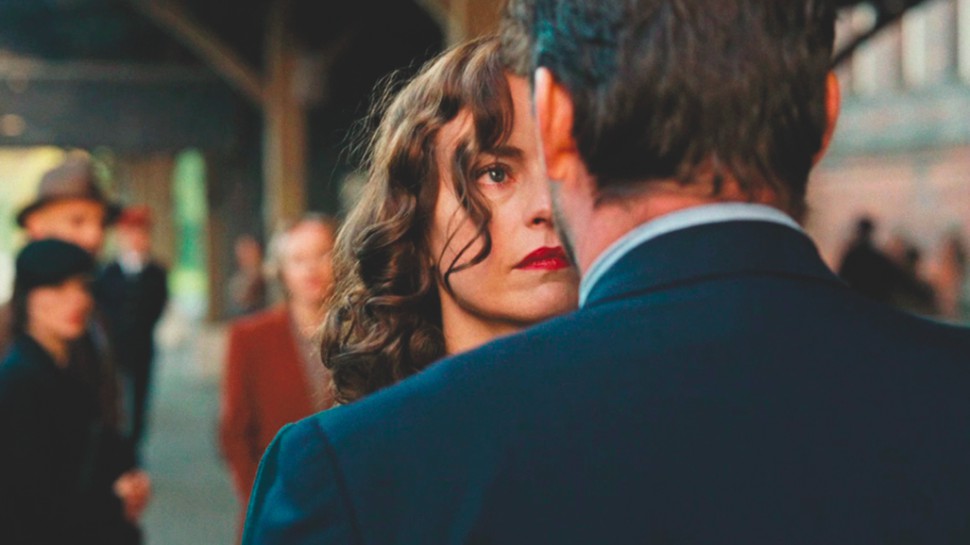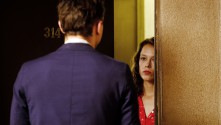
Christian Petzold in Transit
Almost fifteen years ago, the Harvard Film Archive presented a retrospective of one of Germany’s young and promising “rising stars,” Christian Petzold (b. 1960), a member of the then-burgeoning Berlin School. In the intervening years, Petzold has secured a unique place in the cinematic canon of Germany and the world, certainly joining the constellation of directors he references and ingeniously updates in his ongoing dialogue with the cinematic and political past as it informs a precarious present.
Attempting to pin down Petzold’s oeuvre may be as futile as trying to dissect one of his beguiling, inscrutable characters. Combining arthouse cinema with an auteurist Old Hollywood sensibility, he modifies the architecture of popular genres without triteness, sentimentality or heavy handedness. His films run both counter to and alongside popular cinema, engaging in challenging conversation with it, encompassing its history and then reflecting it back onto itself.
Aside from spending his youth in a divided Germany, Petzold was undoubtedly influenced by his alma mater, the politically engaged German Film and Television Academy Berlin, or DFFB (founded on the heels of the Oberhausen Manifesto), and another of its students, Harun Farocki, his mentor, friend and collaborator until Farocki’s death in 2014.
The political undercurrent that often gave 40s Hollywood noir—often German-directed—its razor sharpness, Petzold unabashedly lifts to the surface while pressing the deeply human and impenetrably psychological effects firmly into the foundation. With one foot planted in the reality of the here-and-now, the rest of Petzold is free to delicately manipulate the otherworldiness of the elusive, lost space of cinema.
Rather than crafting his last two “period pieces” in a conventional manner, Petzold precisely tears the folds in time and space, allowing dimensions to intermingle. In these films, he depicts traumatic, transitional spaces in political history, sometimes speaking specifically of Germany, yet widening his reach to encompass many nations, many states of being. And in the case of his latest, Transit, Petzold deftly transposes another time onto the present one, creating a space that rings with both the force of the present and the romantic timelessness of myth.
While his wounded, living characters negotiate these interstitial terrains like ghosts, spectres from the past inhabit the screen with flesh-and-blood tangibility. Petzold delineates the fluidity of identity and its dependency upon political and socioeconomic factors. Often set during suspended states of crisis, everything feels unsteady yet poised expectantly on a precipice. Probability and possibility hang in the shadows around marginalized characters whose actions are unpredictable, whose behaviors are often both inexplicable and completely understandable, who are usually in motion, between places themselves: moving forward while looking back. At times, they may give into fantasy or delusion, yet their mirrored gaze is directed back to an audience, equally delusional, willingly giving into a set of unspoken cinematic tenets. In these transitional spaces, his characters are forced into subtle and often shattering transformations, leaving his hypnotized viewers similarly altered, unable to leave Petzold’s impeccably constructed realm entirely behind upon exiting the theater. – Brittany Gravely
The Harvard Film Archive is thrilled to welcome Christian Petzold for two evenings of transcendent cinema and stimulating discussion.










